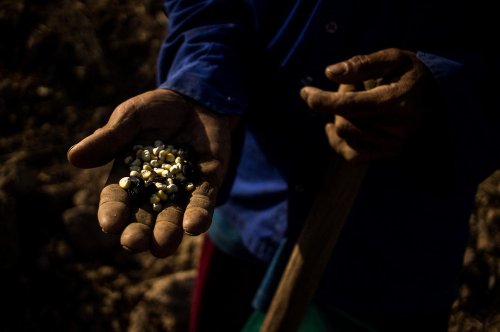The Origins and Journey of Ethiopian Coffee

The Birthplace of Coffee
Ethiopia is celebrated as coffee’s birthplace. According to legend, an Ethiopian goat herder named Kaldi noticed his goats were more energetic after eating wild coffee berries. Curious, he tried them himself and discovered coffee’s invigorating effects. This accidental discovery in Ethiopia’s highlands sparked the worldwide coffee journey.
From Local Tradition to Global Phenomenon
In Ethiopia, coffee began as a vital part of community gatherings. From there, it spread to Yemen, where it was first cultivated, then across the Arabian Peninsula, and later captivated Europe. The first coffee houses emerged, shaping social culture and cementing coffee’s global appeal.
Ethiopia's Cultural Impact on Coffee
In Ethiopia, coffee is more than a drink—it’s a ceremony. The Ethiopian coffee ceremony, a ritual of roasting, grinding, and brewing, showcases the nation’s rich coffee culture. As Ethiopian coffee spread worldwide, it influenced global coffee practices, from specialty coffee to ethical sourcing. Today, Ethiopian varieties are celebrated for their distinct flavors, reminding us of the coffee’s origins.
Unique Ethiopian Coffee Brewing Techniques
Each cup of Ethiopian coffee reflects deep-rooted traditions. The beans are handpicked, roasted, and brewed in a Jebena, a clay coffee pot. The process transforms raw beans into a robust, aromatic brew. Ethiopian coffee is a cultural symbol, representing a nation’s love for its cherished export.
Famous Ethiopian Coffee Regions and Their Unique Flavors
Sidamo
Sidamo coffee offers a blend of spicy and citrus notes, with bright acidity and a light-to-medium body, reflecting Ethiopia's vibrant heritage.
Yirgacheffe
Renowned for its floral and fruity notes, Yirgacheffe’s tea-like coffee is delicate, offering a gentle taste of Ethiopia’s high-quality Arabica beans.
Harrar
Harrar coffee is bold, with wine-like or mocha flavors, embodying Ethiopia's diverse landscape and coffee traditions.
Gimbi
From Oromia’s highlands, Gimbi coffee is full-bodied with balanced acidity and fruity undertones, embodying the warmth of Ethiopian hospitality.
Limu
Limu coffee features a balanced profile with unique spicy and winey notes, capturing the essence of Ethiopia’s biodiversity.
Guji
Guji’s coffee, known for its floral and fruity flavors, is light and refreshing, showcasing innovative cultivation methods.
Lekempti
With a medium body and winey flavor, Lekempti coffee offers a taste as invigorating as Ethiopia's northwest highlands.
FAQs
-
What is Ethiopia’s role in coffee history?
Ethiopia is recognized as coffee’s birthplace, with ancient coffee forests marking the origin of the coffee plant. -
How was coffee discovered?
Coffee was first used in Ethiopia, with traditions dating back centuries, forming a significant part of Ethiopian culture. -
How did coffee spread globally?
Originating in Ethiopia, coffee spread via trade routes, becoming a global staple. -
Who invented the first coffee brewing method?
Brewing methods originated in Ethiopia, where early techniques contributed to coffee culture worldwide.






